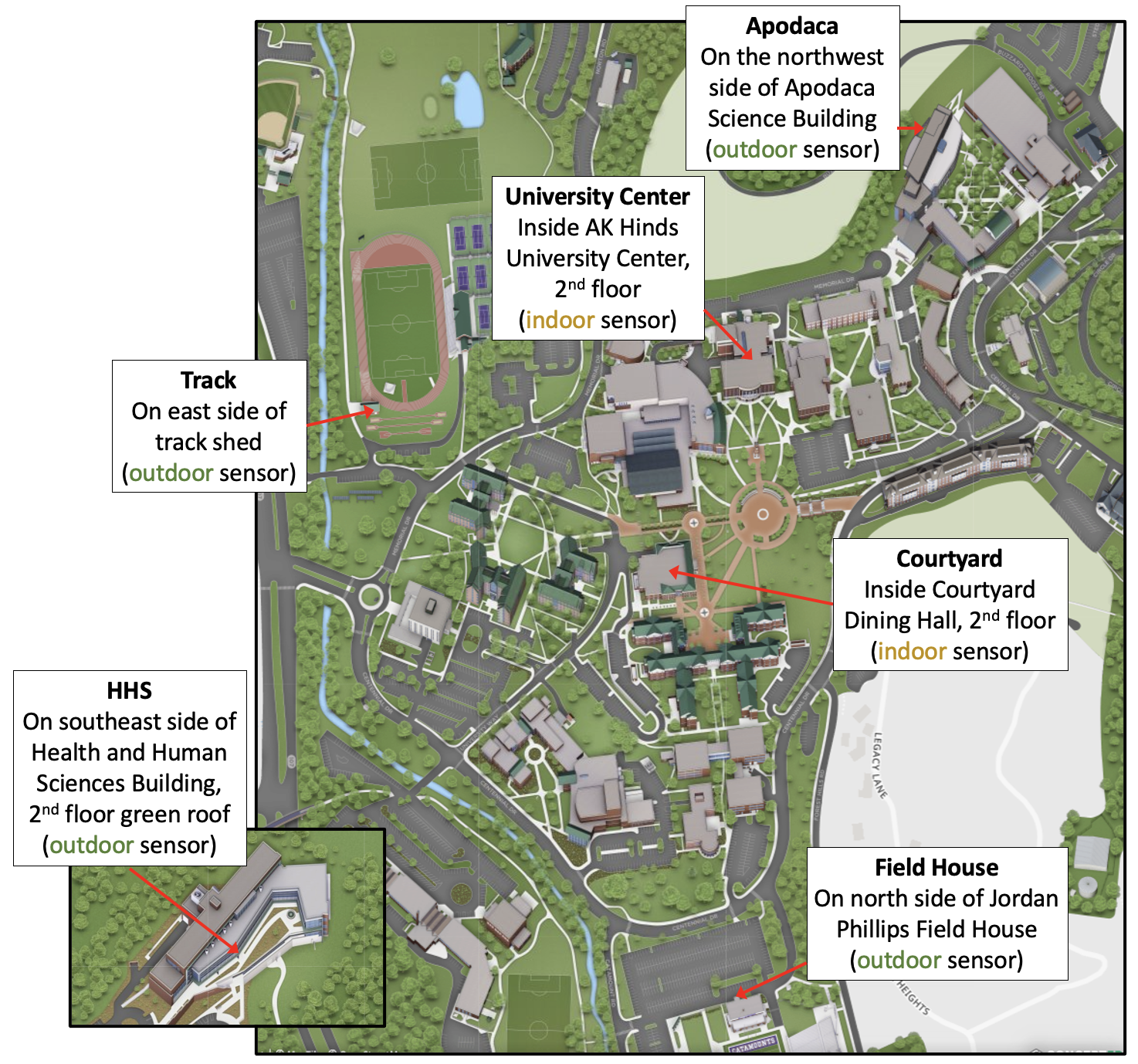Whee Breathe

The WCU Purple Air Network
The WCU Purple Air Network was installed in Spring 2022. There are four outdoor sensors and two indoor sensors. The data from these sensors are freely available on the Purple Air site.
The map to the left as the locations of the sensors in the campus network. Click on the map to the left to view real time data air quality data from these sensors.
This project is sponsored by the Sustainable Campus Initiative
Click the button below to view real-time air quality map.
WCU campus real-time Purple Air data
Loading PurpleAir Widget...
Loading PurpleAir Widget...
Loading PurpleAir Widget...
Loading PurpleAir Widget...
Loading PurpleAir Widget...
Loading PurpleAir Widget...
